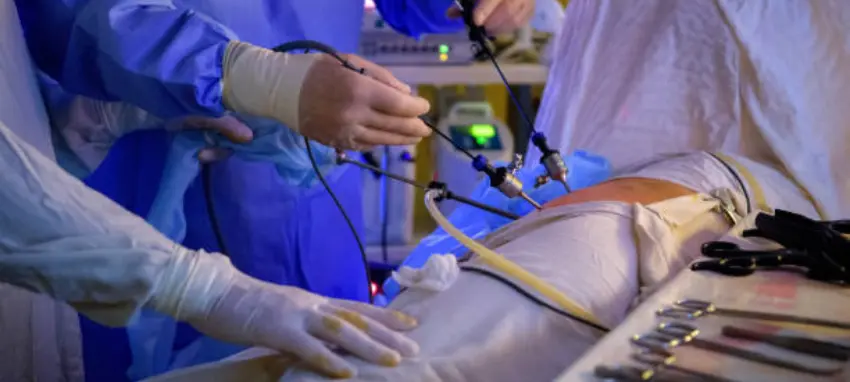Best laparoscopy treatment in Karamadai
Laparoscopies use only a tiny incision and are frequently less painful than standard surgery. You will be anesthetized for the duration of the laparoscopy. Sowmiya Hospital upholds the highest ethical standards in laparoscopic surgery by prioritizing the patient's needs. We are a patient-friendly multispecialty hospital for laparoscopic surgery near Mettupalayam. We have a world-class infrastructure and a notable reputation as a respected healthcare service provider in and around Karamadai.

We inform the patient about their diagnosis, potential treatment options, risks, and benefits. We provide professional and safe surgery and high-quality post-operative care at our hospital.
We have an exceptional surgical department with a team of laparoscopic surgeons, anesthetists, duty doctors, lady surgeons, and nursing staff. We brought together our complete interdisciplinary team of experts to provide you with advanced laparoscopic treatment. Our crew has a track record of treating even the most complex cases with painless laparoscopic surgery accurately and precisely.